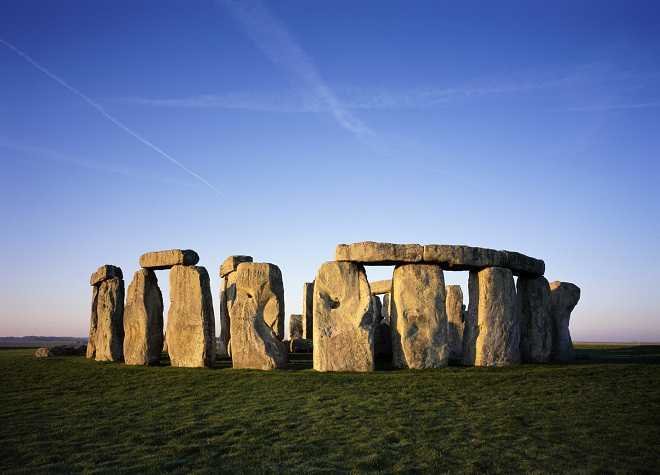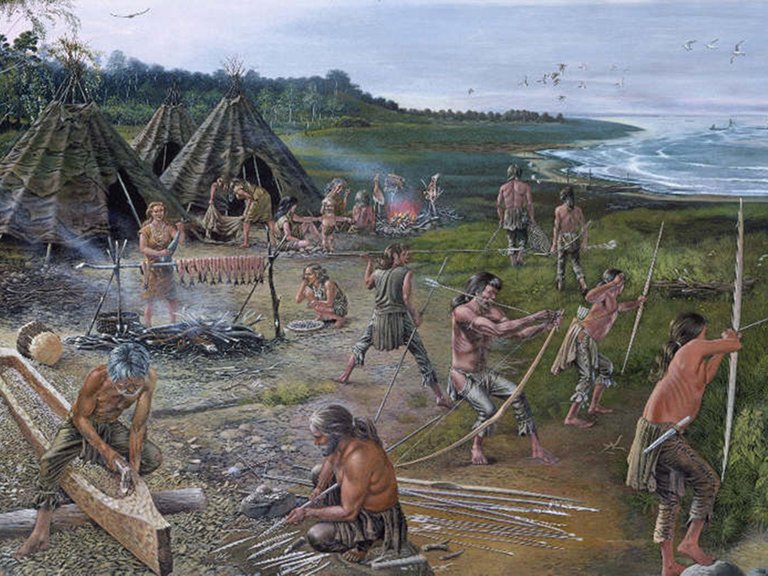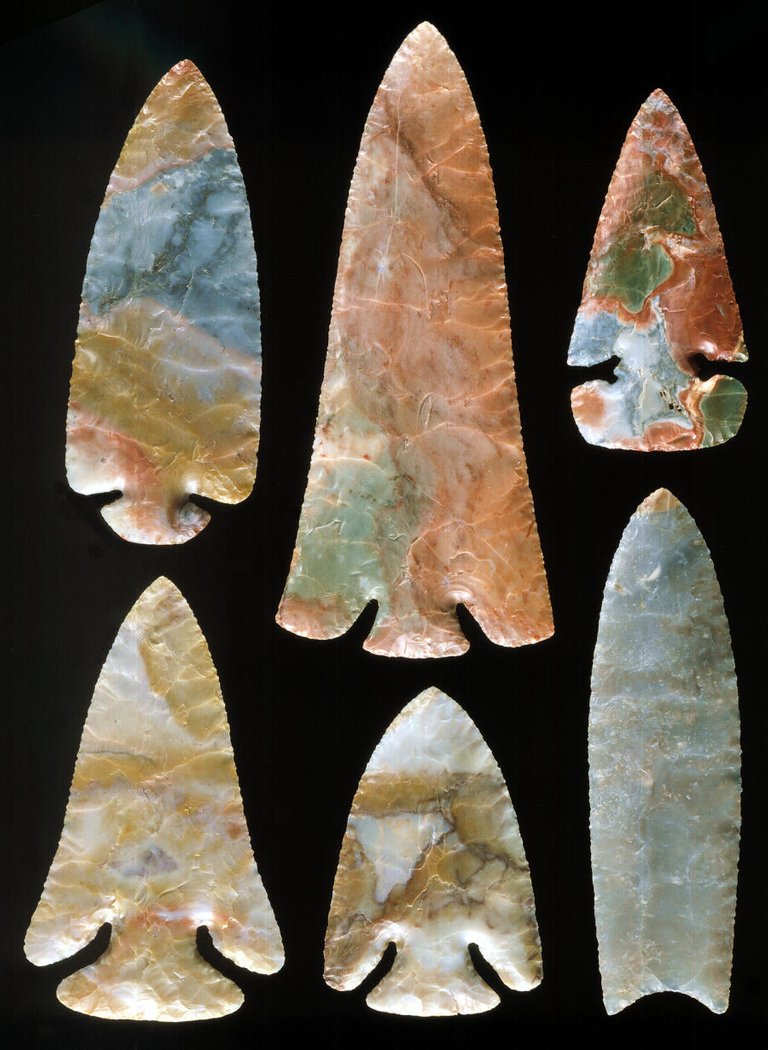
Wherever the winding gear of a pit stands high, there were once tropical forests. The coal-seam is there to prove it. For a million years Britain has been alternately mountain, seabed, jungle, desert or ice-sheet. Giant reptiles, and later such tropical beasts as elephants, apes, or giraffes, browsed in the forests, wallowed in the marshes, or swung from the trees. Much later -perhaps fifty thousand years later a few small scattered human tribes began to gather food on the seashores and where the forests were not too thick.

These little men and women were probably, like most primitive people today, very much afraid of the dark and of what might be lying in wait. They must, we can imagine, have listened in fear for the heavy padding of the mat-coated cave-bear, or dreaded to see one of their toddling children hanging limp from the jaws of some prowling beast, as a mouse hangs from the jaws of a cat. Then gradually, as they learned to make better tools, there came a time when man became the hunter instead of the hunted. Weapons were now no longer simply sticks pointed and then hardened in the lire, but sticks made into spears with sharpened ilints. There were such tools as stone hammers for driving in stakes to make a "house, bone needles for sewing skins, and hoes for digging the earth before planting. Most important, they had learned to keep sheep, goats and cows for milk' and meat. They had learned too to train their hunting dogs both to guard their little flocks and herds at night against prowling wolves, and also to help the children in their work of keeping the flocks together. Food-gathering, hunting, keeping flocks and herds, sowing, reaping, making pottery these seem always to be the first steps when civilization starts.

Farther south, round the shores of the Mediterranean Sea and the Persian Gulf, life changed less slowly, so that, while in Britain there were still only a few small StoneAge tribes always on the move, the Egyptians, Greeks and Romans were already leading settled lives, using an elaborate written language, skilfully growing crops, and building fine cities and sea-going ships.

After a time some of these Mediterranean peoples began to explore and to push north. Now and then a sailor would come back to his home port and, as sailors do, tell a tale of adventure. These sailors told of having touched on the shores of a cloudy, marshy, heavily wooded island where a few suspicious tribesmen lived on the edges of thick forests. They said that these ignorant and backward natives belonged to various tribes, most of which painted themselves blue and dressed in furs. However, so said the sailors, these savages with clumsy tools -chipped liints for hammers, stag’s antlers for pick-axes did manage to do mining, mostly somewhere up-country in their inland lairs, and they would trade tin, lead and even gold, for glass or iron knives.
One of these Mediterranean nations, the Romans, not only explored and traded, but also went conquering. From Italy they marched their armies north into France (called Gaul, in Latin, by the Romans).
When they won battles there, they found that conquered Gaulish chiefs and their followers sometimes escaped north. Where did they go?
LINKS TO IMAGES:
https://evanevanstours.com/sightseeing-tours/london-tours/morning-london-stonehenge-express-combo/
http://lithiccastinglab.com/gallery-pages/roymiller8pointsgrouplarge.htm
http://www.consumerevangelists.com/map-of-the-mediterranean-sea.html
Congratulations @en4orc3r! You received a personal award!
You can view your badges on your Steem Board and compare to others on the Steem Ranking
Vote for @Steemitboard as a witness to get one more award and increased upvotes!